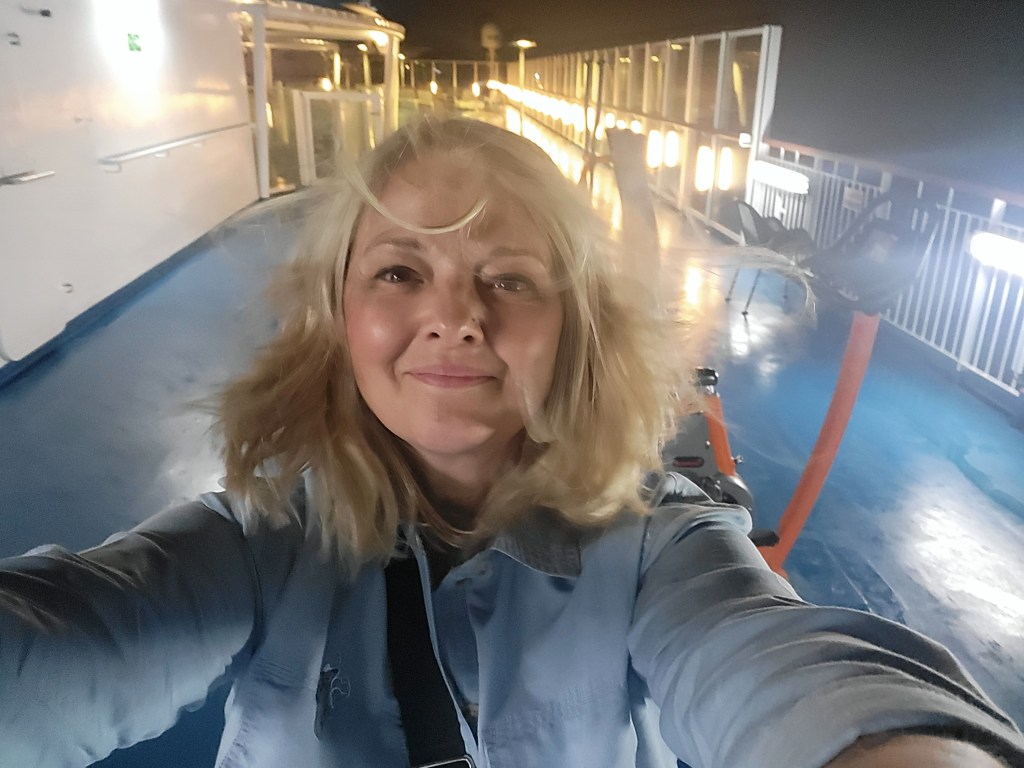After a month away with my family in Spain, I’m back at it — after the rare luxury of properly unplugging: phone off, no news, no inbox tugging at me. Just the rhythm of being with some of the people I love.

My reading view in Spain
It was wonderful, and yet I noticed (as I always do on holiday) a push and pull inside me. On one hand, I can relax into it: the food, the weather, the culture, the sheer joy of unhurried time together. On the other, I sometimes feel heavy with guilt at “just consuming” — taking in so much without giving anything back. That awareness of privilege means I never quite switch off all the way.
And yet, maybe that tension is part of what makes rest meaningful: it reminds me not to take it for granted, and it nudges me to return with something to offer.
One way I softened that sense of only consuming was through reading — a kind of exchange, where each book asked me to sit inside someone else’s world:
- American Dirt by Jeanine Cummins — a tough, urgent story that forces you to sit with the fear and courage of people forced to flee.
- What You Are Looking For Is in the Library by Michiko Aoyama — a gentle reminder of how books and connection can open unexpected doors.
- The Rosie Effect — a big-hearted romantic comedy full of warmth.
- The Outrun by Amy Liptrot — raw, moving, and full of landscape and recovery.
- A Semi-Definitive List of Worst Nightmares by Krystal Sutherland — an inventive take on trauma, fear, and friendship.
Each book, in its own way, asked me to pause and hold space for someone else’s story — their joy, their grief, their humour, their survival. And that idea, “holding space,” is what I carried home with me.
In my freelance work — whether I’m managing a project, facilitating a workshop, evaluating a programme, or acting as a critical friend — the task is often similar. I’m there to create the conditions for other people’s creativity, ideas, and learning to come through. Sometimes that means keeping things on track, sometimes asking the difficult question, and often stepping back so others can take centre stage. The ego has to shrink a little so others can expand.
The same is true in my play therapy practice. In the playroom, my role isn’t to direct or fix, but to be present as a child explores whatever they need to. Sometimes that looks like messy play, sometimes silence, sometimes repetition. My job is to hold the space steady — to allow feelings and stories to surface safely, without judgement, and without me rushing to shape them. It’s often in those moments of quiet presence that the most meaningful shifts happen.
And it strikes me that holding space isn’t only for therapy or work. It can be as simple as listening to a friend without rushing to advise, leaving silence in a conversation so the other person can find their own words, or even giving yourself permission to rest without filling the time with productivity.

Windswept and happy — setting sail into a different rhythm
Maybe that’s why I’m writing this now — to put something out there after a month of mostly taking things in. Blogging, for me, is another form of holding space: laying down a thought, not to declare expertise, but to offer it up so others might find something in it too.
So I’ll leave you with a question: where in your life do you get to hold space — for others, or for yourself? And when someone has held space for you, what difference did it make?




 In stark contrast it scares me how much I expect to attempt to cram into exactly the same time-frame on a working day. When you have the luxury of some time it is not long before your musings on how short a day actually is turn to the brevity of a lifetime itself! As such I find myself overwhelmed by just how much human beings achieve. Given my heightened awareness of time I am now more convinced than ever that human achievements are rarely made by any sole individual, rather it is collective effort that shifts and changes and progresses (or regresses) things. It’s back to my favorite mathematical / philosophical concept – greater than the sum of its parts!
In stark contrast it scares me how much I expect to attempt to cram into exactly the same time-frame on a working day. When you have the luxury of some time it is not long before your musings on how short a day actually is turn to the brevity of a lifetime itself! As such I find myself overwhelmed by just how much human beings achieve. Given my heightened awareness of time I am now more convinced than ever that human achievements are rarely made by any sole individual, rather it is collective effort that shifts and changes and progresses (or regresses) things. It’s back to my favorite mathematical / philosophical concept – greater than the sum of its parts!